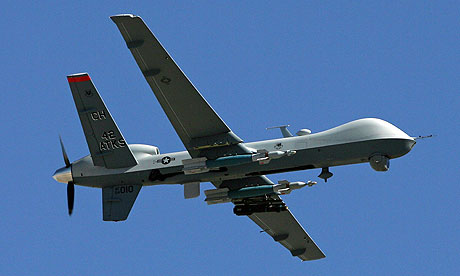A Win-Win U.S.-S.Korea Nuclear Accord?
Compared to the past, South Korea’s nuclear technology has improved dramatically. Recognizing this, the U.S. and South Korea have developed a consensus in the early talks of renewing the Nuclear Non-Proliferation Treaty, which is due to expire in 2014. The most important issue is regarding the processing of used nuclear fuel. Since the renaissance of nuclear power, the huge increase in the demand for nuclear power has lead to an increase in the amount of waste products, including nuclear fuel. The world is facing a problem in the search for a clear alternative solution to this. Just counting South Korea, one million tons of nuclear fuel are left after use in the nuclear power plants. There is no plan for the disposal of the nuclear fuel. The U.S. tried planning for a permanent disposal area at Yucca Mountain, but the plan fell through.
The processing of nuclear fuel is such a big issue because, through reprocessing, nuclear fuel has the potential to become a nuclear weapon. U.S. President Barack Obama is exerting all efforts to make “a world without nuclear weapons.” The first Nuclear Security Summit was held, and President Obama nominated South Korea to hold the second summit in 2012. This is because South Korea’s nuclear policy has gained the confidence and trust of the U.S.
Using current technology, it is still impossible to reduce nuclear waste even though we have secured the means to prevent the conversion of nuclear fuel into nuclear weapons. South Korea’s research on dry processing of spent nuclear fuel (known as pyroprocessing) is the closest solution to achieve the above two goals. All countries, not only South Korea, should work together to improve the current technology and solve the problems plaguing all mankind. In order to achieve these aims, there have been proposals to set up an international fuel cycle center.
South Korea has already gained recognition for its economic prowess and nuclear technology, and should henceforth play an active or leading role in fostering multilateral cooperation. South Korea should also work hard to become an exemplary model in terms of international cooperation. Through international cooperation, the elimination of nuclear weapons and the development of technology to reduce nuclear waste can be achieved. This could potentially solve the problems of nuclear technology and ultimately benefit mankind. This is not a matter of choice, but rather an urgent and pressing issue. At the same time, South Korea will gain international trust with its transparent policies, and take an active and leading role.
By preventing the dissemination of nuclear weapons, reducing nuclear waste and promoting recycling, we can achieve our goal of green development. In 2008, South Korea announced the use of “low carbon green growth” as its basic policy and promised to put in all efforts in developing green technology. Doesn’t the research on processing nuclear waste best fit this policy? Many other countries, including the United Arab Emirates, are also interested in working with South Korea on nuclear plant exports, and this serves as a step towards developing nuclear technology as a future industry in South Korea. The two countries should also make this global problem a priority issue and reach an agreement together.
In order to solve the problem of nuclear waste and to satisfy the Nuclear Security Summit’s policy of preventing the dissemination of nuclear weapons, South Korea and the U.S. should put in their best efforts in negotiations and formulating proposals. Efforts should be made to formulate a solution that is based on technology and theory, eliminating political intervention. It is hoped that both countries will become partners in leading the future of nuclear power, and cooperate fully, leading to a successful negotiation.

